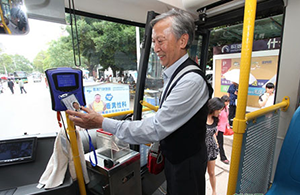'Hong Kong independence' a mirage
By Ma Chao (China Daily) Updated: 2016-07-30 07:42
In the latest survey of the Center for Communication and Public Opinion Survey of the Chinese University of Hong Kong, more than 80 percent of the respondents said "Hong Kong independence" is impossible. The result clearly shows separatism does not enjoy the support of Hong Kong residents despite some local media and netizens hyping up "Hong Kong independence".
In the past couple of years, media outlets supporting the opposition parties and some local netizens, using distorted information and prejudiced views, have gone to great lengths to convince people that the Hong Kong Special Administrative Region is moving on a trajectory toward "independence". The latest survey, however, provides solid evidence that an overwhelming majority of SAR residents still respect China's sovereignty. And they know full well that Hong Kong's close ties with the Chinese mainland are essential for the city's prosperity, even survival.
Take economic ties for example. Although fewer mainland tourists have been visiting Hong Kong in recent years, they still comprise by far the largest group of visitors. Last year 45.8 million mainland residents visited Hong Kong, accounting for 77 percent of the total number of visitors. And a 2014 study found mainland visitors accounted for one-third of the total retail sales in the city. Due to the irreplaceable importance of mainland visitors to the SAR's economy, especially for the tourism and retail sectors, a majority of tourism-related companies still have a welcoming attitude toward them. A handful of disruptive elements that harassed, even attacked, mainland shoppers during protests in the past comprise only a tiny minority among Hong Kong's 7 million residents.
Besides, Hong Kong residents, including many young people, love to visit bordering Shenzhen or other mainland cities for shopping, dining and sightseeing. In 2015, Hong Kong residents made 79.4 million visits to the mainland, averaging more than 10 visits per person. The border crossings between Hong Kong and Shenzhen are the busiest in the world, and at weekends and on the eve of public holidays one can see hordes of people going both ways.
Moreover, about 400,000 Hong Kong residents live on the mainland permanently or on a long-term basis. Many of them have seized the opportunities provided by the vast mainland market to establish successful businesses or build their careers. These people-to-people exchanges are just one example of the inseparable ties between Hong Kong and the mainland.
Still, some local media outlets portray Hong Kong youths as having strong "localist" sentiments who prefer "Hong Kong first" and are against having close ties with the mainland. The irony is that Hong Kong youths are the first to embrace new things from the mainland.
Many young people in the city are experts at buying products on mainland e-commerce websites such as Taobao and Tmall, and use WeChat, mainland-based Tencent's app. Young entrepreneurs in the city take mainland IT tycoons such as Alibaba's Jack Ma and Tencent's Pony Ma as their role models. Jack Ma has even set up a fund of HK$1 billion to help promising Hong Kong youths with their startups.
Though the noises made by a few rowdy "localists" create a negative impression about Hong Kong among mainland residents, the truth is that an overwhelming majority of SAR residents are rational and clear-minded when it comes to dealing with the mainland.
And they know the ties with the mainland cannot be severed and the current constitutional arrangement is the best for Hong Kong, which will always be an inalienable part of China. That also explains why in the same CUHK survey, nearly 70 percent of the respondents supported keeping the "One Country, Two Systems" policy even after 2047.
The author is an editor with the China Daily Hong Kong Edition.
machao@chinadailyhk.com
(China Daily 07/30/2016 page5)

It has been a while since I've contributed to this Forum and I figured that since now I am officially on summer holiday and another school year is behind me I would share a post with you.











